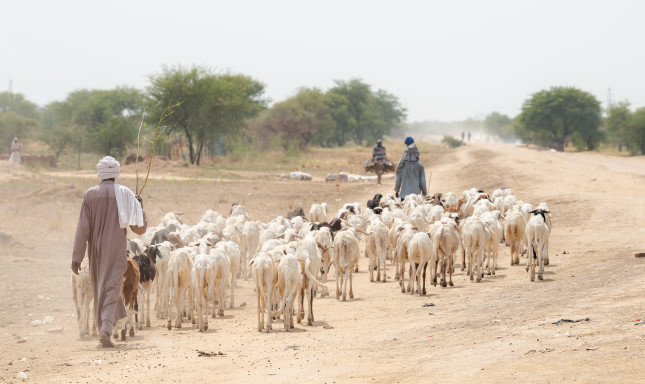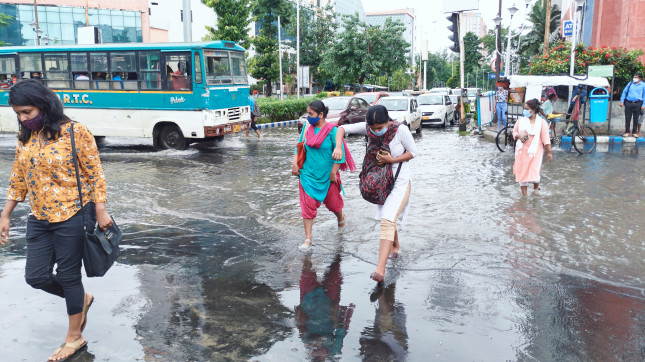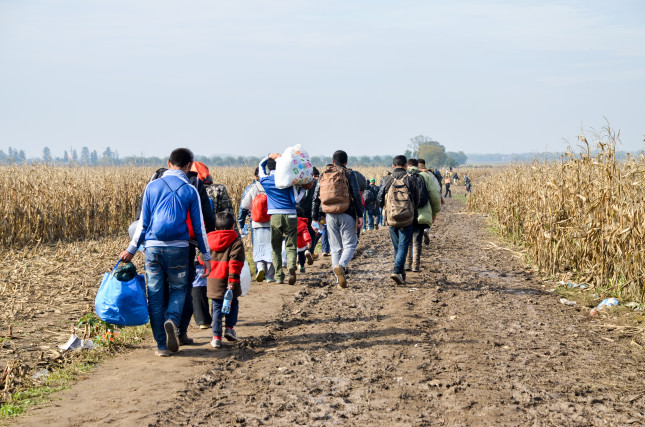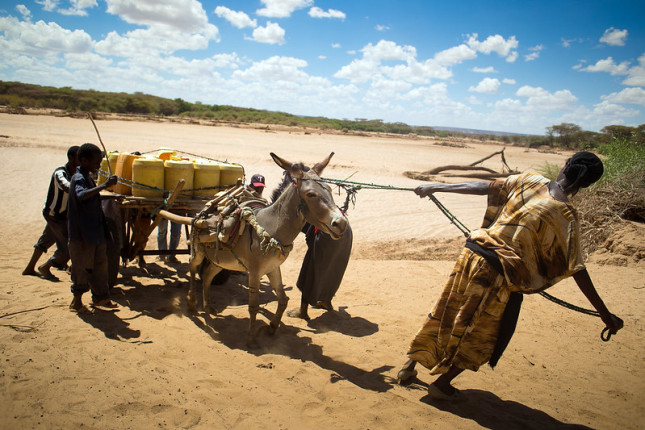-
The Challenges of Climate Change in an Urbanizing World
›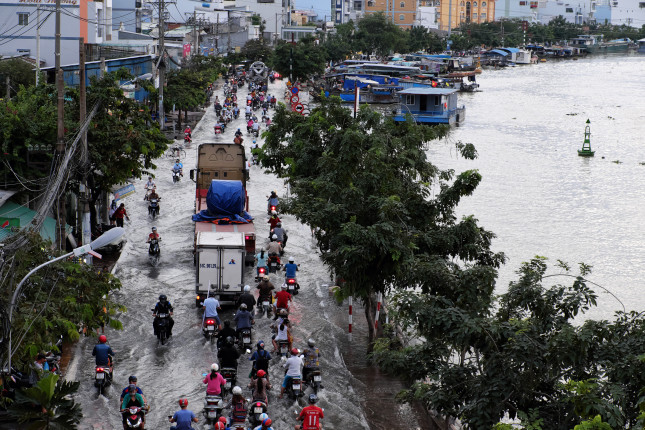
The recently released draft report of the Intergovernmental Panel on Climate Change (IPCC) lays out in no uncertain terms that we face an insurmountable challenge in addressing climate change and its impacts. One shocking takeaway is that sea-level rise is now thought to be irreversible. Indeed, rising temperatures and changing weather patterns threaten to send some cities under water, while causing others to dry up. These opposing challenges increasingly threaten the lives and livelihoods of people in many countries as rapid urbanization is making cities even more densely populated. Floods and droughts threatening the world’s cities will force governments of the world to reevaluate the quality of their infrastructure, their disaster management strategies, and of course, their environmental footprints.
-
Conflict in the Sahel Likely to Worsen as Climate Change Impacts Increase
›
Currently there isn’t a lot of good news coming out of the Sahel, the area in Africa that borders the Saharan desert to the north, the Sudanian Savannah to the south, and stretches across the continent. Multiple raging insurgencies, especially in the western part of the region, fuel a news cycle of offensives and counter offensives, responses and massacres.
According to the damning new ‘code red for humanity’ report from the Intergovernmental Panel on Climate Change (IPCC), the news from the region isn’t likely to get better any time soon.
-
Integrating Conflict Prevention and Climate Change in U.S. Foreign Policy and Development Assistance
›
Climate change is no longer an abstract issue we may face in the future. Devastating forest fires, the hottest June on record in the United States, lethal flooding in Europe and Asia, and extreme droughts in Africa reveal that the climate is already changing with extreme consequences. Even more concerning than these events alone is the reality that the drivers of climate change, violent conflict, and fragile states compound each other. Climate change exacerbates unstable social, economic, and political conditions, while conflict and fragility can hinder effective climate change response and adaptation. The U.S. can address the compound risks created by both of these issues only through integration of conflict prevention and climate change in its foreign policy and development assistance.
-
COVID-19 and the Fight Against Climate Change: What Have We Learned?
›
As the world continues to battle the COVID crisis, we must not lose sight of the greatest long-term threat faced by mankind: climate change.
COVID-19 and its even more contagious variants have wrought misery upon our world, inflicting massive loss of life and sickness, widespread disruption of health services, and economic ruin with ensuing social upheaval. There is no silver lining.
We can, however, attempt to extract useful lessons from the strategies and tactics──both successful and unsuccessful──used to battle the contagion to better array our forces against that other pending global catastrophe: climate change.
-
Recommendations for the Biden Administration on Climate Migration
›
“There is little doubt that tens of millions of people will be displaced over the next two to three decades due in large measure by disaster and other environmental changes affected by climate, with the majority displaced within the borders of their own countries. The United States has a special responsibility to lead on issues of climate change, migration, and displacement,” said Eric Schwartz, President of Refugees International, at a recent event presenting a Blue-Ribbon Task Force report on climate change and migration.
-
China’s Race to 77.6: Is a Target-based COVID-19 Campaign a Model for Climate Response?
›
In China’s campaign to get its population of 1.4 billion vaccinated against COVID-19, the magic number is 77.6 percent. Government agencies all over the country, from Inner Mongolia to Jiangsu, uniformly pledge to get this exact percentage of their populations vaccinated. A rural township in Harbin boasts that it’s fully vaccinated 11,025 of its population of 14,198, 0.05 percentage point above the sacred target of 77.6 percent. So, just what is the significance of 77.6?
-
Benjamin Pohl, Climate Diplomacy
Sustaining a climate for peace
›June 14, 2021 // By Wilson Center Staff
-
From Rhetoric to Response: Addressing Climate Security with International Development
›
Over the past decade, our understanding of how climate change affects conflict and security has advanced considerably. Yet, how to best address the overlapping challenges of climate change, conflict, and human security remains an open question. In an article published in World Development, I address this topic by examining how climate security discourses inform development policy and, in turn, how the structures of development enable or constrain institutional capacity to address climate security. This research identifies not only the unique barriers the development sector must overcome, but also the ways in which the most common framings of climate change (i.e., as a threat multiplier) limit the scope for policy and programming.
Showing posts from category climate change.


